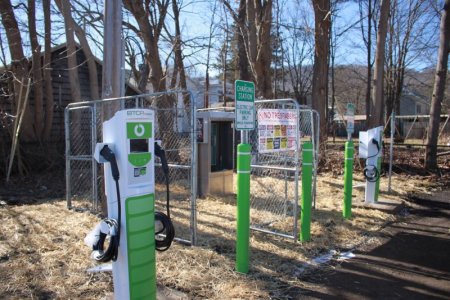I'm totally clueless when it comes to electric cars so this post may sound dumb. I keep thinking about when I go to get gas, a lot of times I have to wait in line to get to a pump. It takes about 5 minutes for a car to get filled up and they are on their way. If we all had electric cars and had to wait in line to charge up, and it takes half an hour to charge, you could be at the charging station for an hour or more depending how long the line was. I don't think that will work out very well for most people.
Or maybe that scenario is totally wrong, considering people will charge up at home most of the time. But if you live in an apartment building, how do you charge the car? Also, I read the cost of installing the equipment to charge your car is really high. "The cost of upgrading your electrical panel to accommodate a home electric car charging station can range from $400 to $2000, and this is excluding the cost of a charging station itself which can add an additional $1000 to $2500."
I just don't understand how all this is supposed to work for the general population.
Between the cost of an electric car, exorbitant taxes, installing a charging station in your garage, probably having to get towed a few times, and the cost of a new battery if needed (I think they're only warrantied for 8 years), I don't see how the average Joe can afford all of this. If gas cars are going to be phased out and electric cars are going to be forced on us, I hope there's a plan in place for everyone to get on board with this new development. Especially for poverty level people or senior citizens who need a car but are living, month to month, on social security.
Just out of curiosity, will charging stations charge different amounts like gas stations do? Or is it "one price fits all" type of thing?





